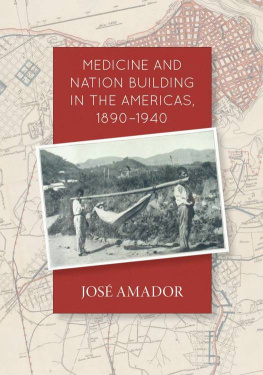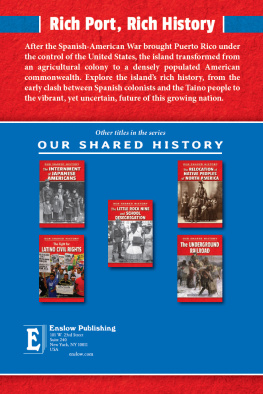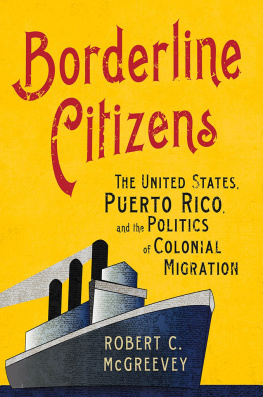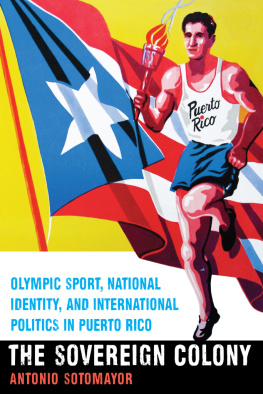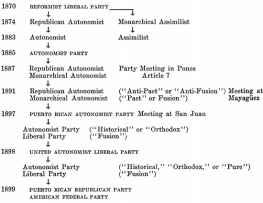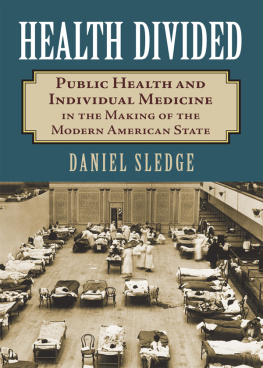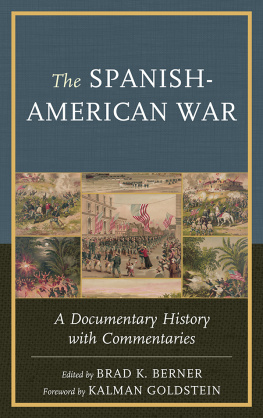MEDICINE AND NATION BUILDING IN THE AMERICAS, 18901940
MEDICINE AND NATION BUILDING IN THE AMERICAS, 18901940
JOS AMADOR
Vanderbilt University Press
NASHVILLE
2015 by Vanderbilt University Press
Nashville, Tennessee 37235
All rights reserved
First printing 2015
This book is printed on acid-free paper.
Manufactured in the United States of America
This book is the recipient of the Norman L. and Roselea J. Goldberg prize from Vanderbilt University Press for the best project in the area of medicine.
Library of Congress Cataloging-in-Publication Data on file
LC control number 2014013077
LC classification number R484
Dewey class number 362.109034dc23
ISBN 978-0-8265-2020-3 (cloth)
ISBN 978-0-8265-2021-0 (paperback)
ISBN 978-0-8265-2022-7 (ebook)
Contents
Acknowledgments
Completing this book has been a journey filled with rewarding encounters and unexpected crossings. For every new place I discovered and for every relationship I forged, there were unspoken moments of doubt, encouraging words of support, and countless debts of gratitude. I am pleased to thank all who added the hues of their own thinking to this project and all whose friendship encouraged me to keep at it. I am grateful to the organizations that funded this project at several stages: the Ford Foundation Fellowship, the Caribbean Exchange Fellowship of the City University of New York, the Rockefeller Archive Center Grant, and the Rackham Merit and Mellon Fellowships at the University of Michigan. I also want to thank the Altman Fellows Program of the Humanities Center at Miami University for the course releases that gave me time to finish the book.
The journey began at a point when I could not have imagined writing a history book. At the University of Puerto Rico at Cayey, I majored in biology with the intention of becoming a physician. Fortunately, the impassioned teaching of outstanding professors inspired me, as an undergraduate, to find value in both literature and history. I extend my thanks to Carmen Adsuar de Bouret for urging me to move beyond the text and assess the political investment of writers. In ways she could not have envisioned, her class, a required liberal arts course, started me on this intellectual path. I owe an equally powerful debt to Blanca Silvestrini, Fernando Pic, and Pedro San Miguel from the University of Puerto Rico in Ro Piedras. Their support and counsel came at a crucial moment and helped me decide to become a historian.
During my years at the University of Michigans Department of History, I was surrounded by scholars who contributed in important ways to the evolution of this project. Sidney Chalhoub, John Monteiro, Maria Helena Machado, Carol Karlsen, Michele Mitchell, Javier Sanjins, and Frances Aparicio encouraged me to explore fully the multiple fields within which this work can be situated. I am especially grateful to the learned and inspired guidance of my committee. Martin Pernicks insights in medical history steered me in directions that enabled me to produce a more nuanced work. Jossianna Arroyo was willing to engage in energetic, lengthy conversations that provided me with the critical tools to understand the racial politics in the works of the intellectuals analyzed here, and her guidance and friendship has been a source of continuous support. Rebecca Scott was a generous and exacting adviser whose high standards made me a far better historian than I would have been had I not worked with her. Her incisive comments pushed me to understand why people make particular choices and challenged me to pursue new questions. I also have to thank Rebecca for introducing me to a vibrant intellectual community of US-based and Cuban scholars. Finally, I am indebted to my committee chair, Sueann Caulfield, whose mentorship has been an impeccable model of intellectual integrity, rigorous critique, and enduring support. I continue to cherish her guidance, friendship, and example.
As I forged ahead in this research, many generous scholars shared their hospitality and ideas in the places I visited. In Cuba, I want to thank Marial Iglesias, Ricardo Quiza, Adrian Lpez Denis, Blancamar Len, Mitzi Espinosa, Orlando Garca Martnez, and Fernando Martnez Heredia for stimulating questions and enduring friendships. I owe a special mention to mis queridos amigos Pablo Riao and Leida Fernndez, whose immense knowledge, good cheer, and warm hospitality made me feel right at home. In Brazil, I had the good fortune of meeting Nsia Trindade Lima and Gilberto Hochman. Both shared their knowledge about the topic, offering valuable references and research suggestions. In Puerto Rico, I benefited enormously from the advice, critique, and encouragement of Juan Gelp, Isar Godreau, Jorge Giovanetti, and Maite Green. Though there are too many individuals to list here, I would like to express my enormous appreciation to all the staff of the many archives, libraries, and foundations I visited in Cuba, Puerto Rico, and Brazil.
It is a real blessing to find in ones graduate career not only enriching intellectual communities, but also lifetime friendships and traveling companions. With fondness, I thank Adrian Burgos, Aims McGuinness, Andrew Ivaska, Frank Guridy, John McKiernan-Gonzlez, Zaire Dinzey, Mrida Ra, Sarah Arvey, and Wilson Valentn for making my graduate student years intellectually exciting and fun. A fortuitous move from Ann Arbor to San Francisco led to fruitful dialogues with other Michigan transplants. I am grateful to Ins Casillas for providing me with an academic community outside Ann Arbor. Constanza Svidler, Sharwan Worsley, Jess Rihelhaupt, and Robin Li were suggestive readers and academic confidants. At Michigan, I also met friends whom now I consider family. They have been a source of intellectual and emotional support. I could always count on Pablo Ramirez to brighten my day with his laughter and wit. The sharp intellect and humor of Mara Gonzlez, mi hermana, was a beacon of light on a regular basis. Constanza Svidler and Brent Armendinger have been my dearest friends ever since we met. We have traveled together, collected stories, and lifted each other up.
I also cherish the wonderful intellectual community I have found at Miami University of Ohio. Collegiality and friendship have been synonymous, especially in exchanges with Elena Albarrn, Juan Carlos Albarrn, Ana Mara Daz, Julie Minich, Roxanne Ornelas, Kelly Quinn, Nishani Frazier, Amanda McVety, Kimberly Hamlin, Yu-Fang Cho, Gail Polhaus, and Madeline Detloff. I thank Helane Androne, Shelly Jarrett Bromberg, and Mary Fredrickson for reading chapters and making thoughtful suggestions. I am especially grateful to Carla Pestana and Tatiana Seijas, who soldiered through several drafts of chapters, each time providing me with fresh critical insights and enthusiastic support. I also want to express my deep appreciation to Walt Vanderbush for much guidance during the finishing stages of this book. Though not at Miami University, Alexandra Puerto and Bridget Arce also played important roles in developing this manuscript.
For sustaining me with their affection through many years, across long distances, I would like to thank a few old friends who have accompanied me during this long journey. I am grateful to Wanda Rivera, Jorge Damian Buzainz, Fernando Pelaez, Alejandro Gil, Yanira Morales, Jessica Renta, Marisol de Jsus, and Elizabeth Romero. Crossing paths with them has been a source of pure joy.
I am pleased to publish my first book with Vanderbilt University Press. Eli Bortz offered me important editorial advice and substantial support. I am grateful for the careful editing and attention to detail of Joell Smith-Borne and Peg Duthie. They made this a more polished book.
I am at a loss for words when it comes to expressing my gratitude and love to my family. The faith and devotion of my late grandmother Ita kept me going when my energy flagged. My thanks and love go to my brother, Gerardo Amador; his wife, Tyra Perez; and my nephew, Gerardo Andre. Their embrace always provides a reason to return home. My father, Carmelo Amador, has, more than anyone, been an example of perseverance, steadfast judgment, and unconditional love. I owe my deepest thanks to Damon Scott, my intellectual companion and soul mate. In addition to editing more versions of this work than I care to remember, he has enriched my life with his kind demeanor and unyielding support. I reserve for him my most profound love and gratitude. Finally, this project is dedicated to the memory of my mother, Carmen L. de Jess. She taught me to laugh and to see the kindness in others. Whatever goodness is in me, I owe mostly to her.
Next page
